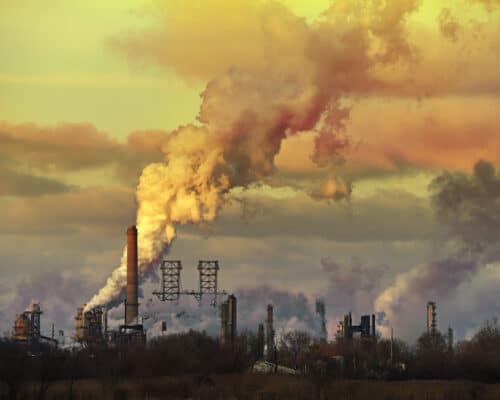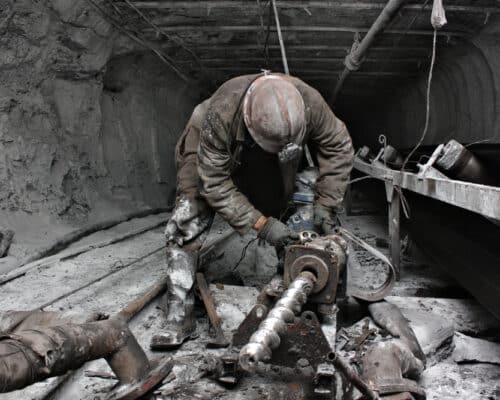Articles
Asia’s Role in the Russia-Ukraine War: One Year Later
A little over a year after the start of the war in Ukraine, CREA's data reveals that countries continue actively buying Russian fossil fuels, with Asian nations among the leading contributors to Russia's state budget.

Energy Transition Technologies: Deficiencies of the Japan-led Guidelines
Recent guidelines on transition technologies for Asia, influenced by Japanese energy policies, promote CCUS and ammonia co-firing in the power sector. As a result, they risk derailing the decarbonisation efforts of SEA countries and the financing institutions investing in transition technologies.

China’s Fossil Fuel Addiction and the Green Transition
China's renewables development leads the world by a more than a two-to-one ratio, but its fossil fuel usage still accounts for more than 50% of its power production needs, creating the world’s highest GHG emissions.
Greenwashing Ads: Fossil Fuel Giants Dominate Social Media
Social media platforms are proving the perfect environment for the oil and gas industry to run greenwashing campaigns. Without swift and adequate action, tech companies risk becoming complicit partners in delaying and derailing necessary climate action.
Driving Change: The Story of Electric Vehicles in Indonesia
The EV transition is taking the world by storm. While emerging markets remain the last bastion of legacy automakers, they will soon also embrace the transport industry's electrification. And Indonesia promises to be among the best examples of the EV revolution.
Japan’s ‘Green Transformation’ Would Derail the Energy Transition in Asia
Japan stopped exporting dirty coal technologies last year following pressure from campaigners. However, its new Green Transformation strategy relies on the continued use of fossil fuel-based technologies, and the country plans to prolong fossil fuels across Southeast Asia by promoting carbon capture, gas and the co-firing of ammonia at coal power plants.
Japan’s Hydrogen Plans: A Closer Look
Japan is basing much of its 2050 net-zero goals on hydrogen development without clearly defining what it considers "clean hydrogen". As such, its hydrogen plans mostly rely on blue hydrogen, which still involves burning fossil fuels.
Carbon Capture and Storage: Pros and Cons
Carbon capture and storage (CCS) provides a pathway towards reducing fossil fuel-related emissions and bolstering hard-to-abate carbon intensive industries. Additionally, it provides benefits like economic growth and job creation and can be crucial to the global low-carbon shift. However, questions remain regarding its high costs and varying effectiveness.
The Growing Burden of Climate, Water and Energy Crises on Women
women still find themselves in disproportionately disadvantaged positions compared to their male counterparts, particularly in rural Bangladesh and India. As countries strive for equal opportunities and to make the world a better place, they must accelerate efforts for clean solutions.
Carbon Credits and the Problem With Fossil Fuel Companies
Fossil fuel companies are increasingly relying on questionable carbon credits as they face mounting pressure to meet climate targets. Instead of phasing out polluting fuels, the industry is now rebranding them as low-carbon, carbon-neutral and clean. But, are they?
Global LNG Outlook 2023: Is There a Future for LNG?
Global LNG markets will remain volatile for the rest of the decade, negatively impacting Southeast Asia. The region's carbon emissions-intensive gas-to-power build-out exacerbates the problem. With a myriad of problems from LNG and gas-to-power usage, energy economics dictate that renewables development is the best path for Southeast Asia.
Japanese Technology Expansion: Southeast Asia Pays the Price
This year's G7 meeting, which Japan will chair, remains an important moment for its international credibility in the battle against the climate crisis.
Fossil-linked Energy Firms Have High Emissions and the Room for Denial is Shrinking
The first set of globally aligned sustainability and climate-reporting standards is expected to be published in June 2023. The news was announced at the World Economic Forum in Davos in January 2023 and chief among the new requirements is emissions reporting, including Scope 3.
Most Popular
Most Popular
Categories
-
9
-
31
-
128
-
4
-
17
-
39
-
51
-
14
-
10
-
15
-
24
-
6
-
158
-
164
-
23
-
1
-
1
-
22
-
30
-
36
-
66
-
14
-
75
-
40
-
17
-
6
-
28
-
22
-
85
-
252
-
20
-
35
-
31
-
9
-
41
-
35


